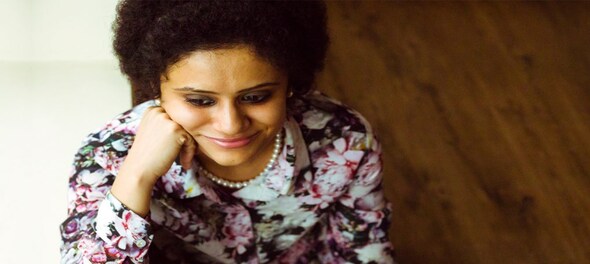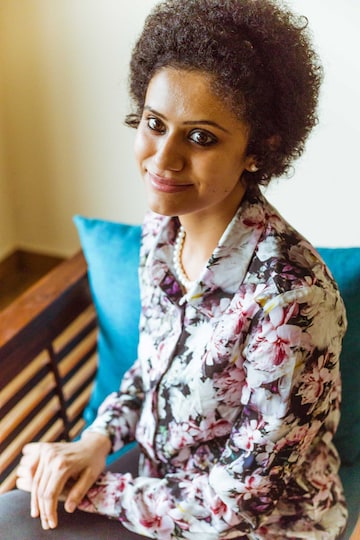
Imagine this. You wake up in the morning with a heavy heart and your breath denser than usual. Your fingers are trembling with confusion, fear, anxiety... clearly, you are not doing well. Later in the day, you revisit this mob of emotions, contemplate, maybe you should cry or scream, but an unfamiliar smile graces your lips. You don’t know why and you try again – a noise, more like a shriek, is meddling with your peace of mind.
You try again and this time you burst into a peal of laughter that hurts your jaws, followed by a stream of tears that hurt your emotional balance and give you a pounding headache.
The past two years have been rough and messy. I went through all of the above not once but several times, especially on days when the sky was gloomy and I was reeling from an unexpected void. Also, around the same time, I heard my favourite author Elizabeth Gilbert talk about how creative people fear their own elusive genius.
Hello! My name is Manvi and I am a writer. No matter how powerful or attractive this introduction sounds to others, there are layers of vulnerability beneath. For two and a half years, I was off the rails. I say this out loud because hiding never really helped anyone.
Every time, I tried to get back on track, I only got further disappointed because I grew up believing that being healthy and happy is our natural state of mind. But at this phase of my life, I was neither.
And so, what we don’t get inside, we look for it outside. I started finding happiness 'outside' and the extent of it was 'unhealthy' and 'addictive'. I lost meaning in life, a sense of purpose, a sense of identity. I felt like I didn’t belong. Nothing excited me. To quench my deprived state of mind, I opened myself to further hurt by relying on factors or people who were volatile themselves.
For sanity, I have been trying to recall and process my emotions by chronicling them every day on paper. I flip through self-help books. I have also spent a lot of time reading about famous researchers, scientists and doctors who have put in years helping creative people.
 Manvi Pant
Manvi PantWhat I found is that there is a possible link between creativity and mood disorders. American neuroscientist Nancy C Andreasen, who compares her own academic journey with Sylvia Plath's, writes, "Our openness to new experiences, tolerance for ambiguity, and the way we approach life enable us to perceive things in a fresh and novel way,” and that creative people “live in a more fluid and nebulous world."
Psychologist Perpetua Neo also links mental illness and creativity. "Artists can be pretty unhappy people," she says, "and they are often quite honest about that fact. With the tortured-artist identity, they believe their creativity is a form of therapy, to create a fantastical kind of world to the real one we live in. What if the therapy doesn’t work, what then?"
Research on this phenomenon is not new. Dive into the archives of The New York Times. In an article dated November 14, 1994, Kay Jamison, a professor of psychiatry at Johns Hopkins University and the author of Touched With Fire: Manic-Depressive Illness and the Artistic Temperament, says, "When we think of creative writers, we think of boldness, sensitivity, restlessness, discontent; this is the manic-depressive temperament."
Does this mean that all creative folks are doomed to torment? Or, that they should be scared of their ever-elusive genius? I’d hazard a ‘no’. Our mental faculties, and what influences them, are strong relative to our environment (both internal and external) and our ability and willingness to find a support system. Some navigate through the storm better than others. Some lose sight of the need for balance.
But what I’ve learned for sure is that you are not alone, and it is never too late to talk about it. Time never heals; it rather pushes you to move forward with your sentiments in coherence with your learnings. But you begin to recognise what leads to what and you become more cautious, more aware of repercussions. In his book Emotional First Aid, psychologist Guy Winch talks about the unquestionable importance of self-care and why it is needed now more than ever and everyone should practise it.
There are several Japanese philosophies that make you mindful of your presence and the difference you can make to this broken and polarised world. Concepts like wabi-sabi, kintsugi and ikigai talk about inner happiness and connection and help you reinstate your present.
Despite having an internal dialogue with my subconscious mind almost daily, it took me very long to respond to these self-affirmations and take control. Even today, I do relapse, go down the drain and pick everything from scratch. I choke. But what I know for sure is I have welcomed healing with open arms by acknowledging my problems. From here, the only way can be up.
Check out our in-depth Market Coverage, Business News & get real-time Stock Market Updates on CNBC-TV18. Also, Watch our channels CNBC-TV18, CNBC Awaaz and CNBC Bajar Live on-the-go!


Prajwal Revanna's father in custody for alleged kidnapping and sexual abuse
May 4, 2024 7:53 PM
Delhi, Indore, Surat and Banswara — why these are the most challenging domains for Congress internally
May 4, 2024 1:53 PM
Congress nominee from Puri Lok Sabha seat withdraws, citing no funds from party
May 4, 2024 12:00 PM
Lok Sabha Polls '24 | Rahul Gandhi in Rae Bareli, why not Amethi
May 4, 2024 9:43 AM

